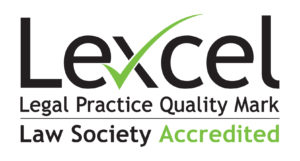INHERITANCE TAX
For most business owners, the word ‘tax’ in January means Income Tax and getting your return filed on time. But an important revision to tax on death means there’s never been a better time to review your private, family affairs. This is particularly the case if you are considering selling your practice or have recently done so.
You may have read in the press that the Inheritance Tax nil-rate band is rising, heralding the “£1 million tax-free allowance”. But is it really that simple? The devil is, as ever, in the detail.
From April of this year, a new, additional ‘Residence’ nil-rate band is being introduced. It will not be fully implemented until April 2021, but is being gradually phased-in.
After April 2021, in order for your estate to qualify for the full £1 million tax-free entitlement, those dealing with your affairs will need to have available a combination of full, unused nil-rate band, transferable nil-rate band (from your pre-deceasing spouse) and residence nil-rate band. For those with estates over £2 million, a taper will reduce the amount of allowance available. It may be that your estate only qualifies for a proportion of the new relief, or that your affairs need to be arranged so that the residence nil-rate band is not wasted.
In order for your estate (or that of your spouse) to benefit, you will also need to leave a qualifying property to a close lineal descendant. Both of these terms have multiple meanings. There could be problems for those who want to use trusts in their wills, particularly if you are undertaking some planning for other reasons. The structuring of your assets and how you leave them on death may need to change. Any planning previously undertaken, particularly involving old-style will trusts, needs to be carefully reviewed.
Furthermore, with added complexity for those you leave behind, the choice of executors has never been more important. Should your executors be professionals (such as solicitors or accountants), capable of handling the complicated nature of your affairs? If using trusts, does your choice of executors and trustees leave you with enough confidence that your wishes will be fulfilled? Or does drafting your will rigidly to maximise tax-efficiency limit the flexibility and discretion you may otherwise wish your trustees to have?
Why leave matters to chance? Have your affairs reviewed in detail, or make your first wills, and give yourself peace of mind.
The team at FTA Law provides advice to clients across the commercial and healthcare sectors with many of our instructions coming from referrals from long standing clients and industry contacts.
Contact usWe understand that price is a big concern for our clients and we always aim to offer a fixed fee for our services.














